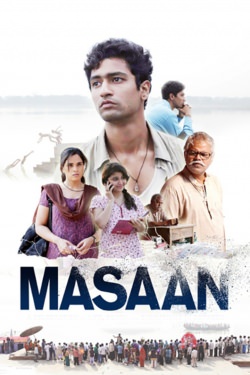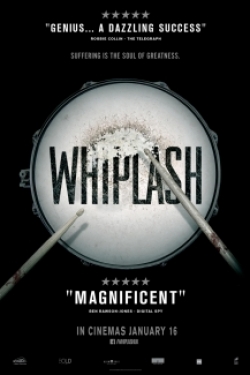Top Rated Films
Kusumita Das's Film Reviews
-
When the setting itself is so unnatural, it is indeed a task to make the troubles seem organic. Ki and Ka have their fights, but the situations seem forced into the narrative. The tone goes from playful to preachy and that ride is choppy. So the concept, a crackling one to begin with, soon crumbles like a house of cards.
-
What shines through the 130 minutes is Anay Goswami’s painterly cinematography and Amit Trivedi’s velvety soundtrack. Fitoor doesn’t lack pace, it lacks the finesse and the depth. And we are left with not much to do except marvel at the white beauty of Kashmir, while the real Pip, Estella and Miss Havisham remain buried under that thick blanket of snow, perhaps occasionally stirring in their graves.
-
A little more finesse could have helped Chalk n Duster emerge a topper in the genre. With a subject like this, telling the story well was as important as telling it at all. Unfortunately, for now it better hide its report card.
-
A story that uses chess quite literally as a game and as a metaphor, we’d have loved to see it check-mate us. We’d have loved to lose to the storyteller and have all our guesses proved wrong by the time the end credits rolled. But sadly, this game leaves a lot to be desired.
-
A film like Jazbaa needs a constant tension in the story and in its characters given the straitjacketed situation they are in. The pace needed to transcend inane car chase sequences and seep into the restlessness of the characters. Gupta had a good story to work with and he lifts up the second half by several notches. But sadly, he gets too caught up in pandering to his Korean cinema fetishes to polish the story. He lands on a punch line every now and then, uses one slide of text in the end to make the film seem like one that is fighting the cause of rape, thereby completely stripping it of any character. He told us how to hold a coffee mug. If only he could hold on to a script as tight.
-
Bangistan stands on ground zero. In T.S. Eliot’s famous words, the film begins and ends ‘not with a bang, but with a whimper’.
-
The visual grandeur and scale aside, Bombay Velvet fails to live up to its ambition. Don’t even try to search for sharp dialogues and Kashyap’s trademark wicked humour. That’s probably reserved for his indie ventures only.
-
The story has pace but falters when it comes to substance. The background score is a plus and perhaps one of the few things that add some edge to the limping narrative. With better performances and more nuanced writing, this would have been a very different film. Also, the directors needed to have a tighter grip on the many stories they are trying to tell in two hours.
-
Hindi cinema feeds us enough fiction for us to expect a completely true story told with hundred per cent accuracy. So the factual question marks are not entirely what we fault ‘Hawaizaada’ for. True or not, it was a good subject that the director had his hands on. But sadly, ‘Hawaizaada’ limps a bit too much to even come close to convincingly recreate the life of a man who dreamt to be the first one to fly.
-
Mr Kumar’s intentions in Super Nani maybe good, but this is 2014 where the audience is used to a certain standard of message delivery. Think English Vinglish, think Queen, think Highway. The finest shades of ‘women empowerment’ in Hindi cinema. You cannot wish these away and pretend you have done enough with a preachy, contrived session on family values.

























